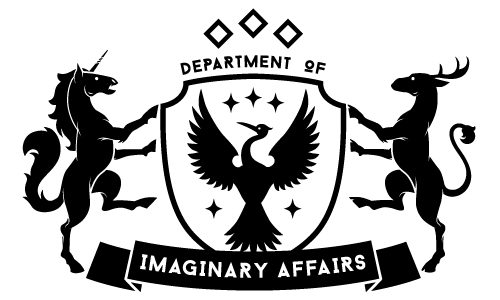
Reflections from a one-month old Program Manager
As I’m nearing almost a month of working at the Department of Imaginary Affairs, I’ve been thinking a lot about progress. Have I really moved the needle on anything? How have I moved The Stories of Us project forward? And of course, the “I” word. Has my work had any meaningful impact? The truth is, I don’t think I’ll have answers to any of those questions until at least a few more months down the line, when I’ve had enough of a runway to look back process with wiser eyes and a clearer head. What I can share are reflections and patterns that have emerged over the past few weeks:
A traveller in my own city
This work has given me the opportunity, already, to travel to parts of the city that I wouldn’t otherwise frequent and connect with Torontonians with whom I wouldn’t otherwise have an opportunity to interact. From North York, to Rexdale, to Scarborough, and Regent Park, I find myself constantly humbled by how little of this city and its people I interact with on a regular basis. And while the new street names and bus routes feel foreign, the community spaces that I enter and pass through – public libraries, community centres, child care centres, colleges – have consistently engendered a feeling of home.
Excitement as a contagion
When I first learned about The Stories of Us project, I got REALLY excited. So much so that a standard cover letter couldn’t contain my excitement and I had to voicenote my job application instead. However, as it became my job to share the story of the project on a daily basis, via emails, phone calls, in-person meetings, the novelty wore off and the excitement turned into mild skepticism. In the grand scheme of things, was this work truly important? Cue the existential crisis. Relief and re-energization in these moments has consistently come in the form of other folks who get excited about the project. A volunteer beamed with pride when he saw his published storybook and proceeded to share it with anyone who would listen. An ESL teacher who was so bought in that she wanted to contribute her own storybook. A potential partner whose exclamation turned my entire day around: “Oof. This is more than just storytelling. This workshop is a mental health intervention! So therapeutic.” Needless to say, I got off that last call and had myself a mini-cry.
Stories as an access point to trauma and healing
This is a big one. In piloting a few of our workshop activities at the Culture Days events earlier this fall, we learned that storytelling – in its truest, most uninhibited form – creates space for the spectrum of emotions that make up the human experience. In this space, there’s is potential for healing and there is potential for re-traumatization. And part of our responsibility in holding this space in our workshops is ensuring that our facilitation and the environment that we create is trauma-informed. This means giving folks the option to share, as much or as little as they’d like, in any way that feels comfortable to them. It means reaffirming the emotions they are expressing, particularly when they feel shame or embarrassment in expressing them. It means breaking down the notion that only some people with certain experiences and levels of fame should engage in storytelling.
Spreading the wealth
The more organizations I connect with, the more I’m realizing how lucky we are to have received this funding to do this work. So many of them are doing important work, some going above and beyond their mandates to support newcomers in their settlement journeys, and others like On the Spot Language, border crossings, and Newcomer Inventions, who are pushing the boundaries altogether of what this work can look like. My question to these folks, wherever possible and whenever it makes sense for them is: how can the DIA amplify their work through The Stories of Us platform? How can we expand our resources to include and support others in the system?
The Department of Imaginary Affairs
When I’m sending outreach emails, I try to mention that I work at the Department of Imaginary Affairs within the first few lines. It catches attention and peaks curiosity like nothing else, and for that I’ll be forever grateful to Blair and Jenn for the name. Meanwhile, when I’m making calls, I try to avoid saying that I’m calling from The Department of Imaginary Affairs, to avoid being mistaken for a prank call…
That’s all for now, but I suspect there will be many more reflections and learnings to come as we:
- Host more workshops for newcomers with our emerging community partners
- Think about how we can continue to ensure our work is trauma-informed
- Continue to connect and work with organizations, volunteers, and advisors who will inevitably shape our work and thinking.
– Mathura
